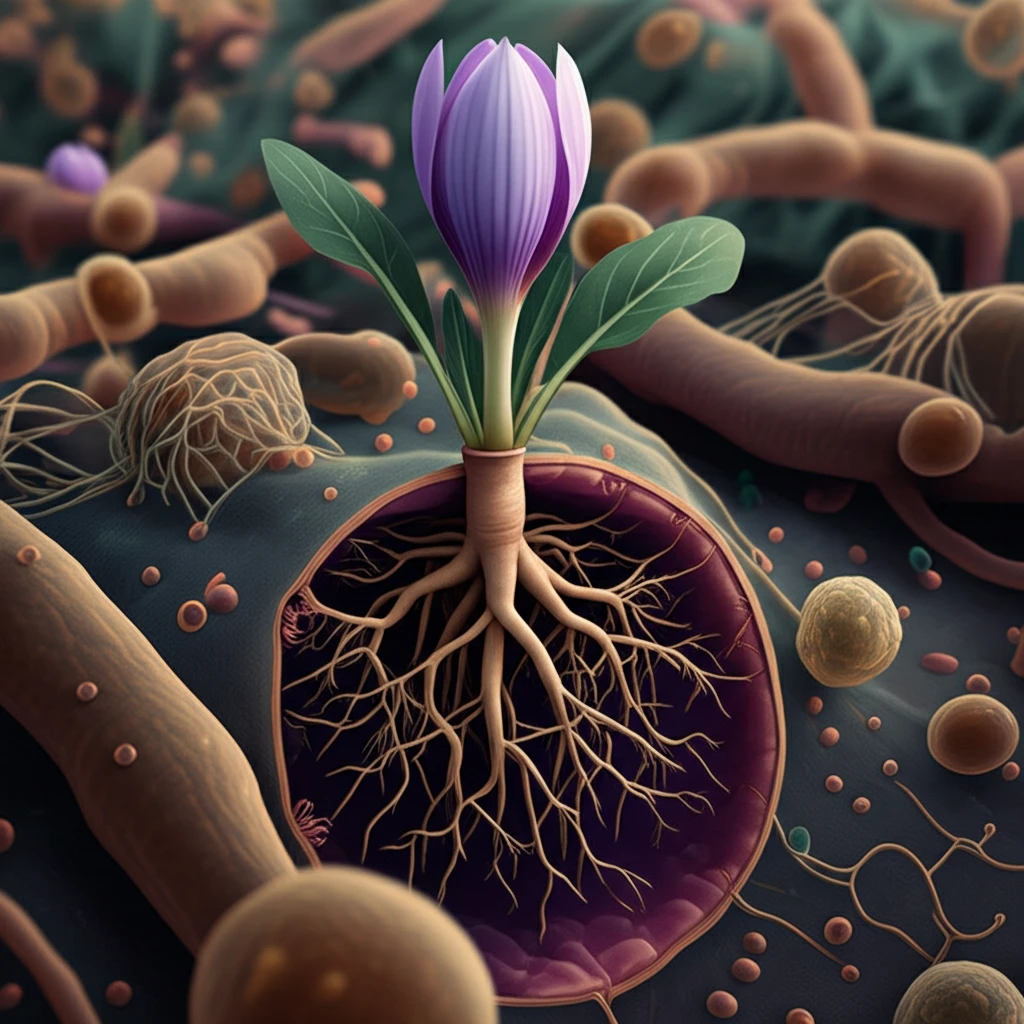
Could This Flower Hold the Key to Colon Cancer Treatment? The Colchicum pusillum Story
"Scientists are exploring how extracts from the Colchicum pusillum flower could revolutionize colon cancer therapy by targeting key cellular pathways."
Colon cancer remains a significant health challenge worldwide, prompting ongoing research into innovative treatments. While conventional therapies like chemotherapy and radiation play crucial roles, scientists are increasingly exploring natural compounds for their potential to combat cancer. One such avenue of investigation involves the Colchicum pusillum, a flower native to regions like Northern Cyprus, traditionally known for its medicinal properties.
This humble flower contains colchicine and other alkaloids that have garnered attention for their anti-tumor and anti-inflammatory effects. Recent studies delve into how Colchicum pusillum extracts might specifically target and disrupt the cellular mechanisms driving colon cancer. Understanding these mechanisms could pave the way for new, more effective treatment strategies.
This article explores the groundbreaking research into Colchicum pusillum, shedding light on its potential to revolutionize colon cancer treatment by targeting key cellular pathways. We'll break down the science in an accessible way, revealing how this flower could offer new hope in the fight against this pervasive disease.
Unlocking Colchicum pusillum's Potential: How Does it Fight Colon Cancer?

The primary focus of current research is to understand how Colchicum pusillum extract interacts with colon cancer cells at a molecular level. Scientists are particularly interested in its effects on the Wnt/β-catenin pathway, a critical signaling pathway that, when dysregulated, can fuel cancer growth.
- β-catenin: The extract appears to increase β-catenin levels, which is intriguing because while increased activity of this protein is generally associated with cancer progression, the way Colchicum pusillum extract impacts it might trigger different cellular responses.
- LGR-5: Similarly, the extract boosts LGR-5, a marker for stem cells in the intestine. Elevated LGR-5 can denote increased potential for cancer cell renewal, suggesting the extract's effects are complex and warrant further investigation.
- Wnt7a: Notably, the extract decreases Wnt7a, a signaling molecule that typically plays a protective role against cancer. This decrease suggests that Colchicum pusillum might inhibit the protective mechanisms that cancer cells often exploit.
- Caspase-3: The extract significantly increases caspase-3 activity, a crucial protein in initiating programmed cell death (apoptosis). This increase indicates that Colchicum pusillum can trigger cancer cells to self-destruct.
The Future of Colchicum pusillum in Cancer Therapy
While the research on Colchicum pusillum is promising, it's still in its early stages. Further studies are needed to fully understand the mechanisms at play and to determine the optimal way to use this extract in cancer treatment. However, these initial findings offer a compelling glimpse into the potential of natural compounds to revolutionize the way we approach colon cancer therapy. With ongoing research, Colchicum pusillum could one day play a key role in improving outcomes for individuals battling this disease.
